At the centre of the eastern side of the ambulacrum of the “great hunt”, in correspondence with the mosaic scene relating to the “land between two seas”, 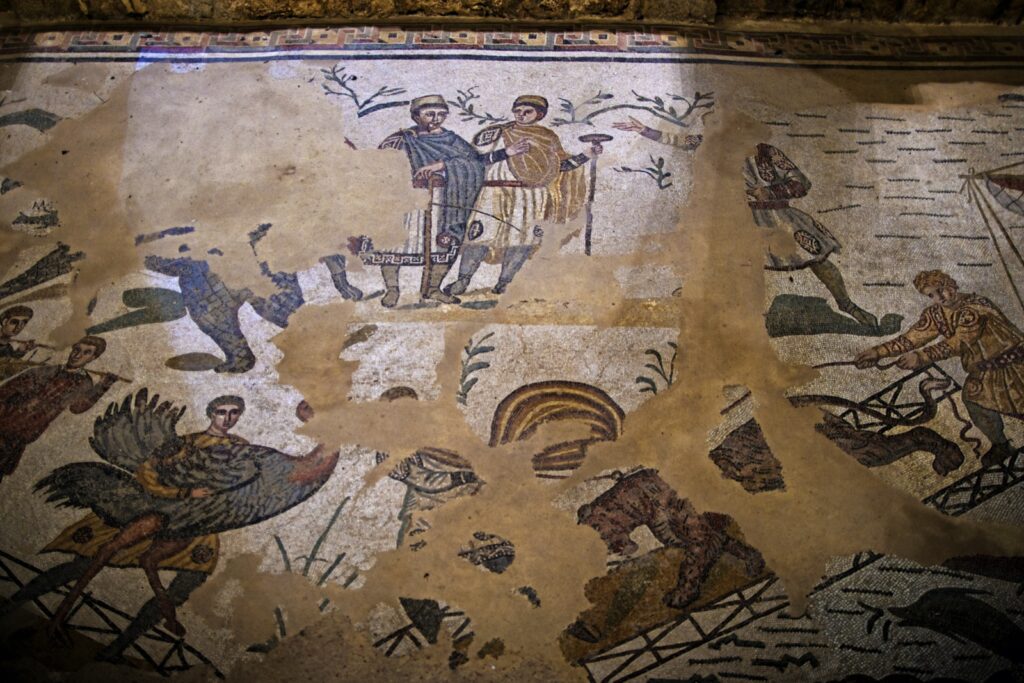 which symbolises Rome, the unifying city of peoples, is the entrance to a grandiose rectangular
apsidal hall
which symbolises Rome, the unifying city of peoples, is the entrance to a grandiose rectangular
apsidal hall
.
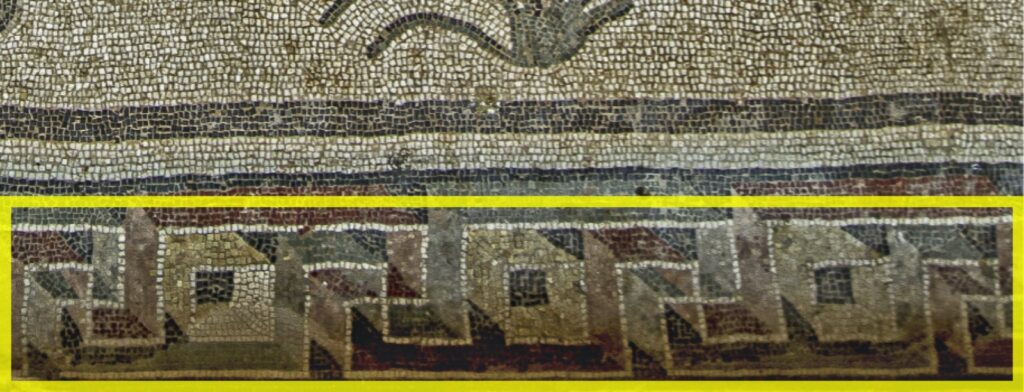
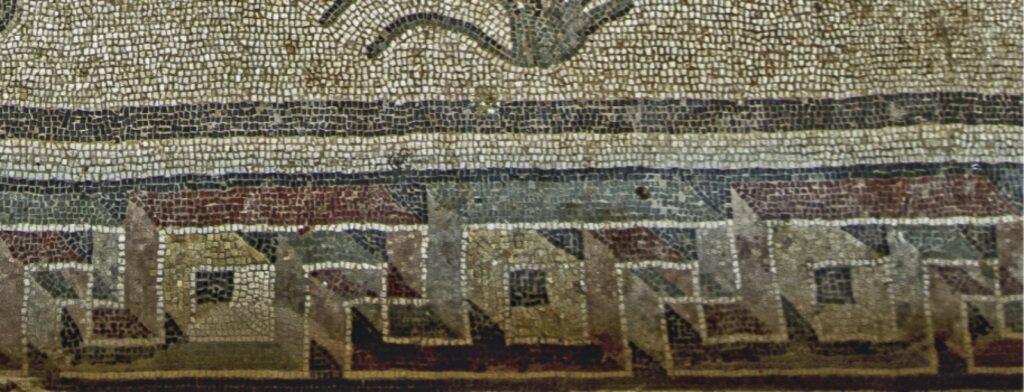
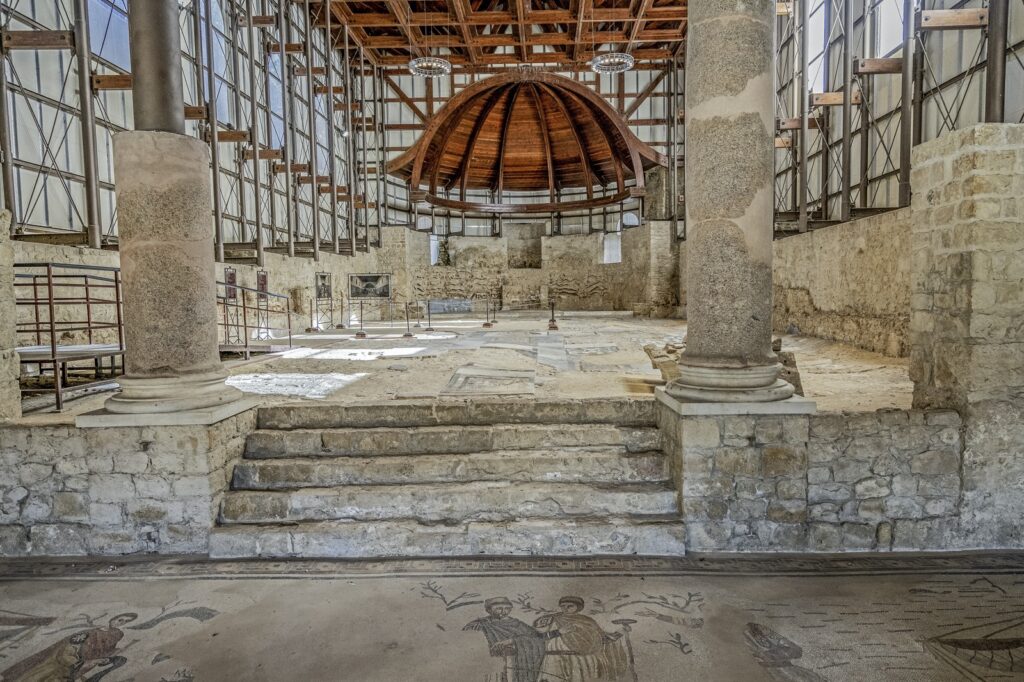 The
basilica
The
basilica
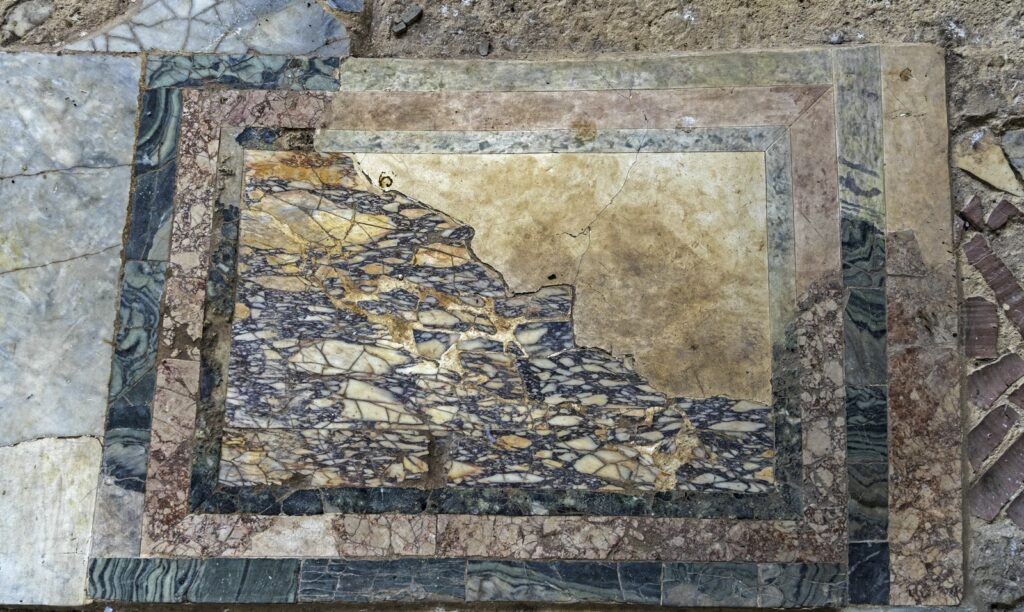 only partly preserved, divided into seven bands with an east-to-west orientation. These contain squares and rectangles of different sizes and alternate with narrower aisles, mostly of solid-coloured alabaster. In the centre of the hall, a square with concentric circles placed inside it breaks the regularity of the pattern.
only partly preserved, divided into seven bands with an east-to-west orientation. These contain squares and rectangles of different sizes and alternate with narrower aisles, mostly of solid-coloured alabaster. In the centre of the hall, a square with concentric circles placed inside it breaks the regularity of the pattern. 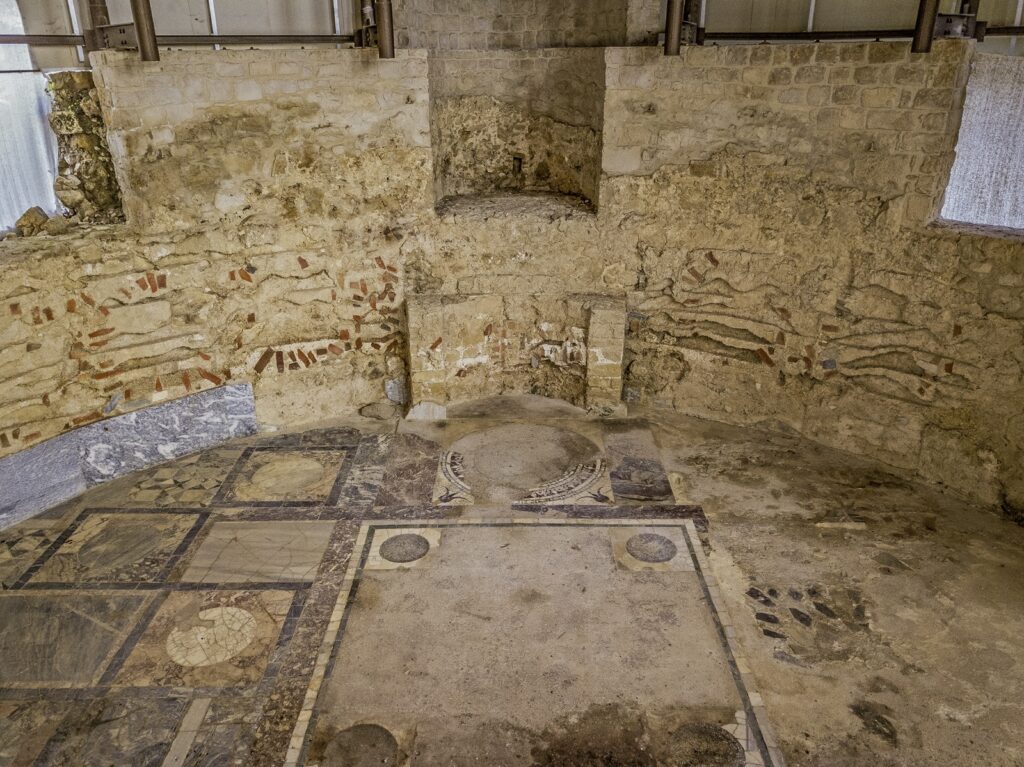 In the
apse
In the
apse
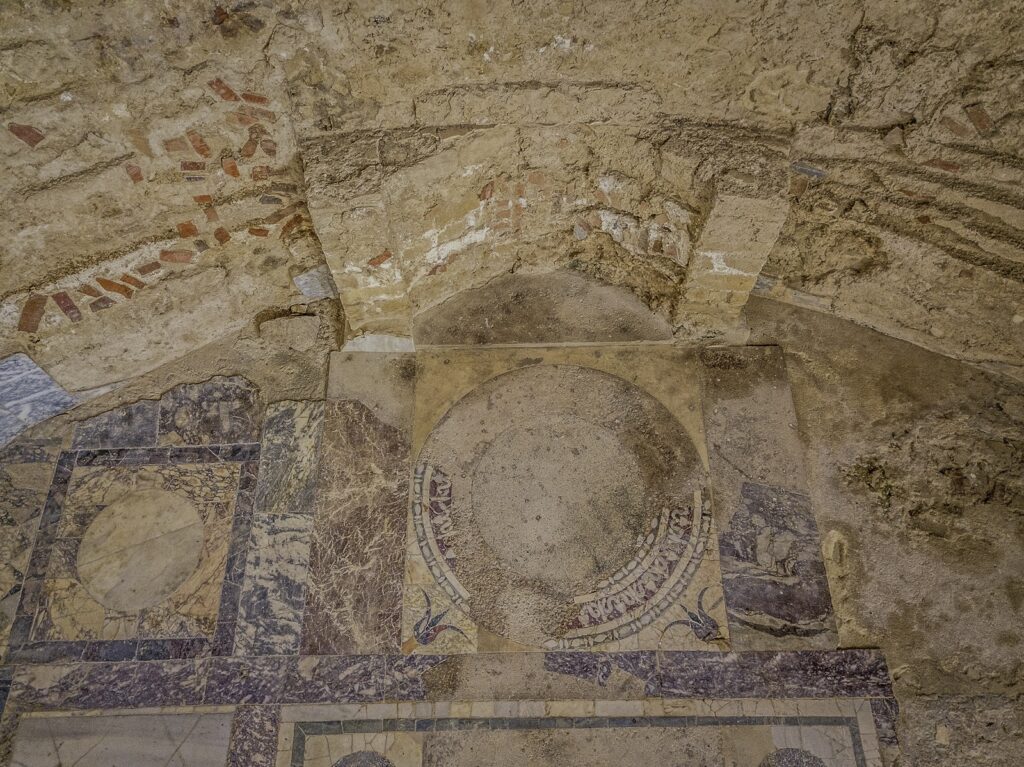 Porphyry, a precious marble, not only had an imperial use, but was also widespread in private residences with a public character.
Porphyry, a precious marble, not only had an imperial use, but was also widespread in private residences with a public character.